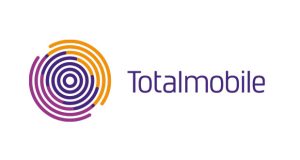Managing inbound deliveries at a busy facility is a complex and costly task. For facilities managers, the choice often boils down to actively managing deliveries with high labour costs or reacting to the chaos of uncoordinated schedules, both of which come with significant challenges.
The Costs of Reactive Delivery Management
Unmanaged delivery schedules lead to congestion, inefficiencies, and resource strain. Imagine a Monday morning when 100 suppliers arrive simultaneously. Without a system, staff may be pulled from other roles to marshal the delivery area, creating peaks that are both expensive and impractical to handle with limited labour resources.
This congestion impacts the entire supply chain. Overloaded offloading equipment and service routes often result in goods being left in delivery areas, increasing the risk of misplacement, damage, or theft. Resolving these issues diverts management time and resources, further compounding costs.
Delays in delivery also affect recipients, causing operational disruptions and additional expenses. The absence of active controls not only harms operational efficiency but also creates reputational risks for facilities.
Challenges of Manual Delivery Management
Some facilities try to actively manage their schedules manually, but this approach is labour-intensive and inefficient. Coordinating bookings between suppliers, carriers, and recipients takes significant time and effort, particularly in facilities with high delivery volumes. These challenges are compounded during peak periods, when resources are stretched thin, and operational inefficiencies quickly escalate.
In many cases, manual systems result in over-reliance on staff to manage even routine tasks, such as scheduling delivery slots, communicating site rules, and coordinating supplier access. The inefficiencies extend beyond time, as delays and miscommunication can create ripple effects across the supply chain, harming operational performance and stakeholder satisfaction.
Case Study: COP26
This high-security, event presented challenges in managing inbound deliveries. Without an efficient system in place, it was estimated that a dedicated team of 5–6 full-time staff would have been required to manage supplier bookings 24/7 in the logistics office. This would have resulted in excessive labour costs and an unmanageable workload.
However, by implementing Zone Manager’s DMS, the event organisers were able to significantly reduce the staffing requirement. The system enabled streamlined scheduling, automated communication of site rules, and proactive management of peak delivery periods. As a result, only 1.5 staff members were needed to oversee the logistics office. Most of their time was spent performing security checks using the information provided by the system, rather than coordinating bookings or resolving preventable issues.
Mitigating Risks and Ensuring Compliance
Unmanaged deliveries can lead to non-compliance with traffic and safety regulations, particularly for facilities requiring council permits or operating under strict local rules. Fines for non-compliance or penalties for traffic breaches can add up quickly.
Additionally, unmanaged delivery areas increase the risk of property damage. For example, vehicles that exceed height restrictions can damage entryways or infrastructure, leading to costly repairs and downtime. Zone Manager minimises these risks by ensuring all stakeholders are informed of site rules and delivery protocols, helping to avoid accidents and compliance issues.
Zone Manager: Transforming Delivery Management
Zone Manager automates inbound delivery management, streamlining operations and shifting many responsibilities to suppliers. Here’s how it makes a difference:
- Automated Scheduling: Suppliers book their own delivery slots, reducing the labour burden on staff and ensuring smoother scheduling.
- Peak Flattening: The system spreads deliveries evenly throughout the day, avoiding congestion and the costly peaks associated with unmanaged schedules.
- Site Rule Compliance: Key requirements, like vehicle height restrictions and delivery times, are communicated to suppliers and hauliers during booking, minimising risks of property damage and delays.
- Carbon Tracking: For facilities monitoring scope 3 emissions, Zone Manager automates data collection, eliminating the time and costs associated with manual reporting.
With these capabilities, Zone Manager reduces labour costs while improving overall efficiency. For many sites, the cost of a year’s subscription is offset within the first month of implementation.
To learn more about how Zone Manager can transform your inbound delivery management, visit www.zonemanager.co.uk or call 0345 222 9902.
-ends-
The view or information contained within these unedited press releases, are that of the company producing it and not necessary the views of kpm.





